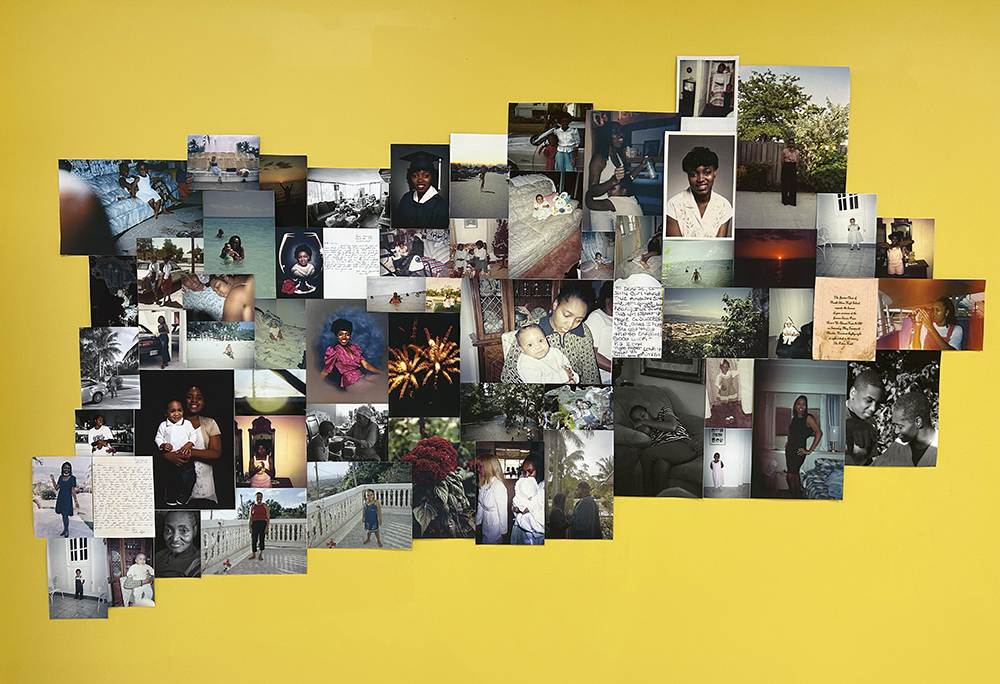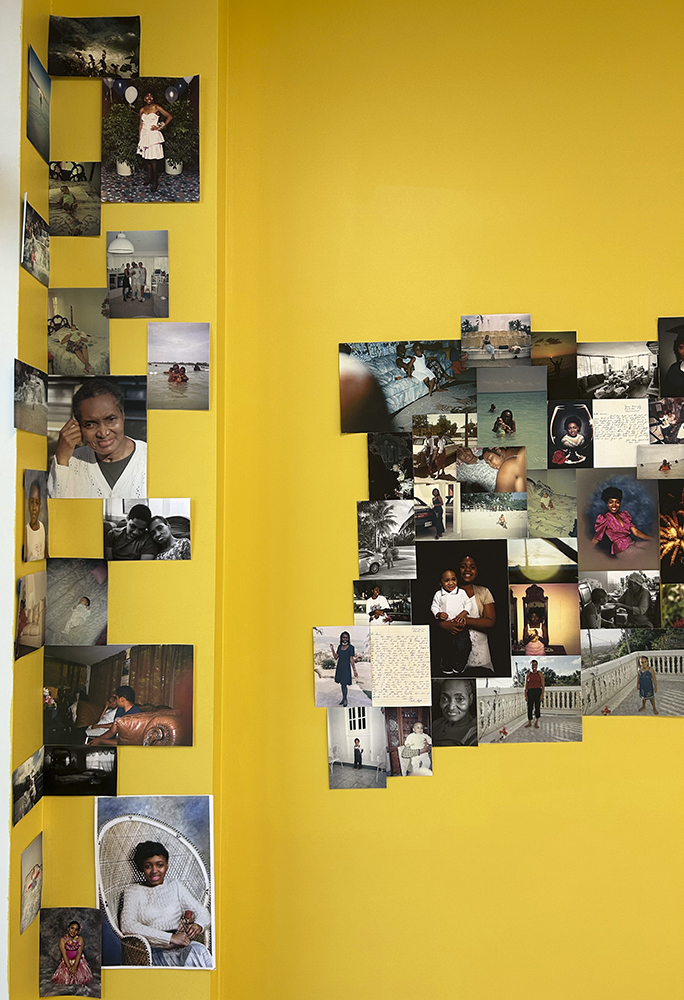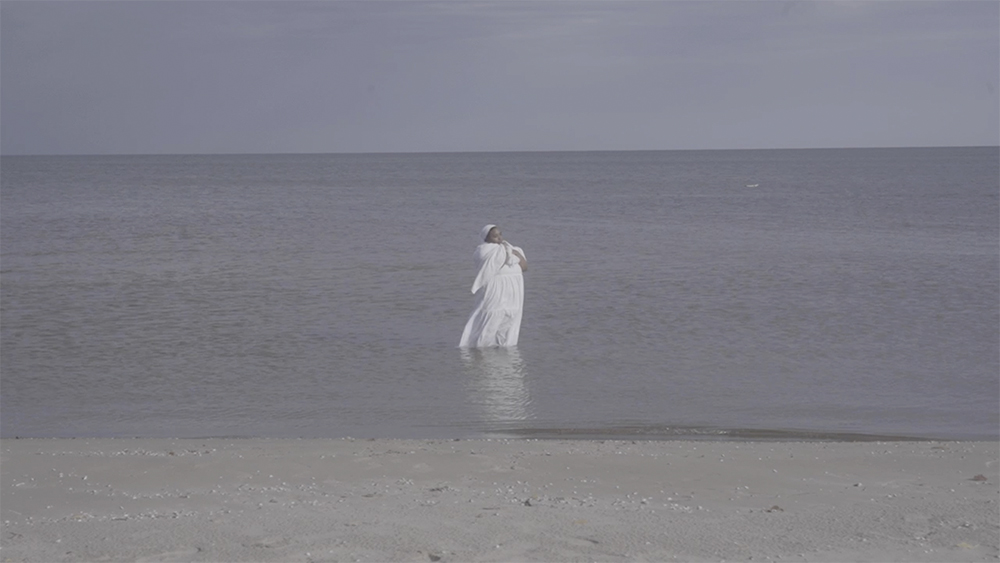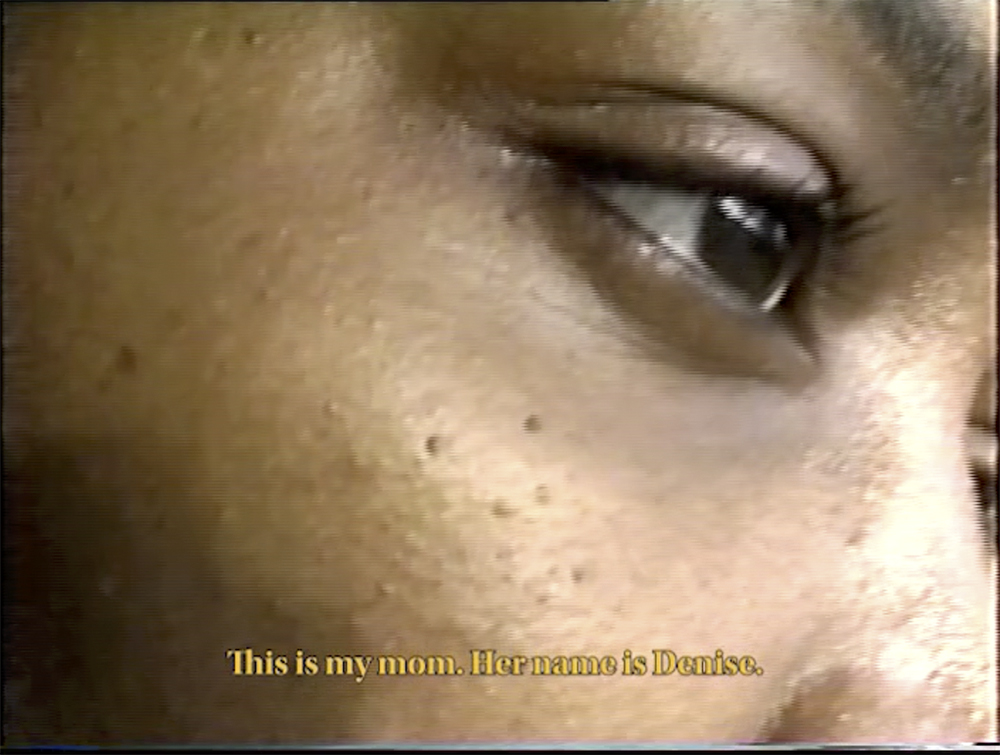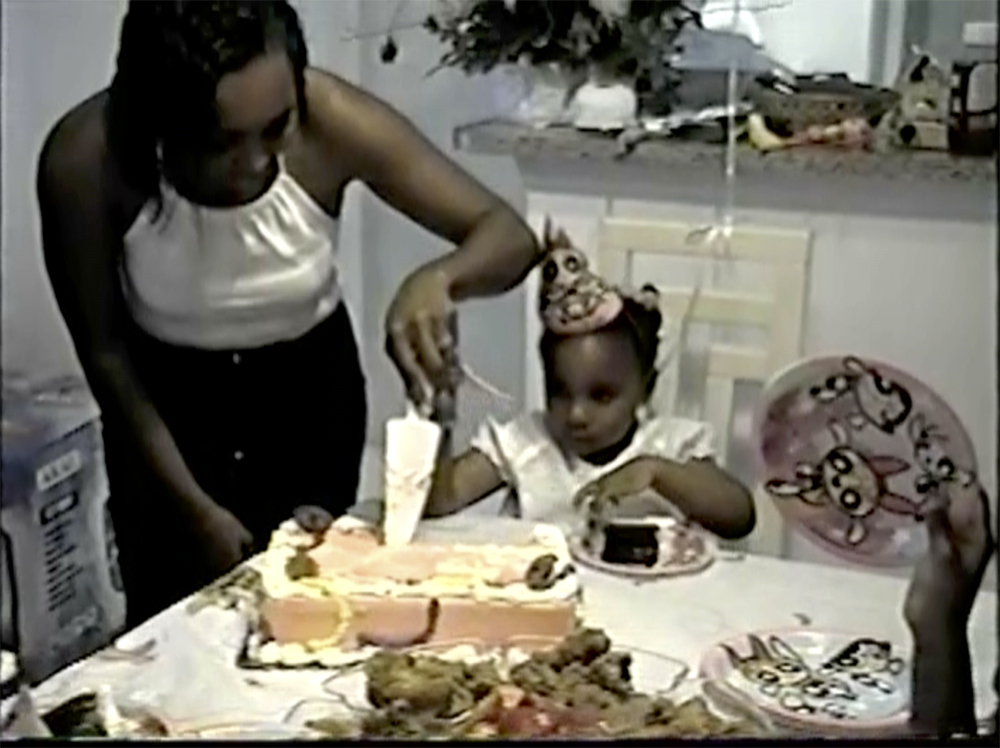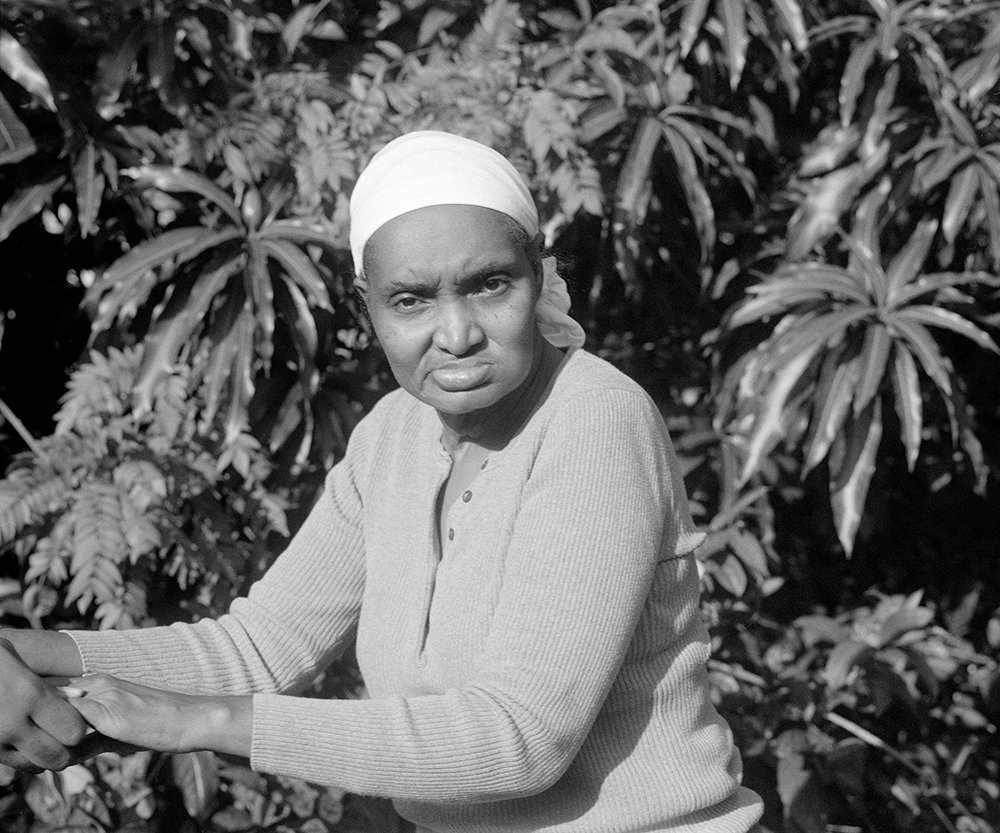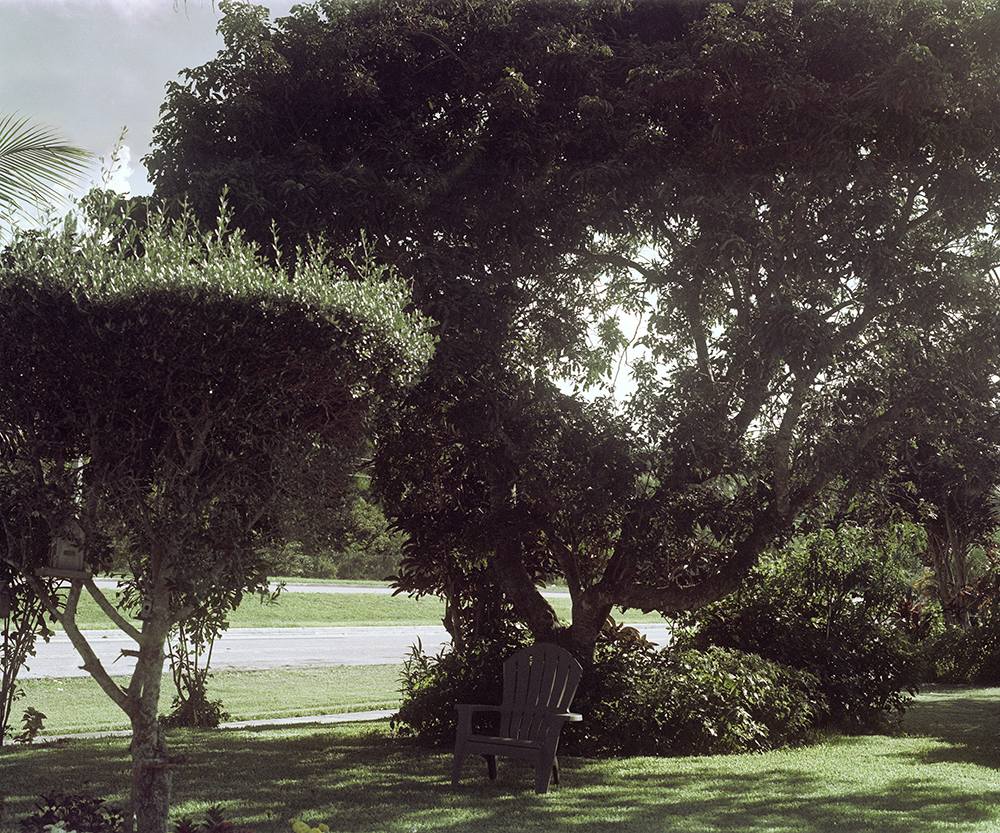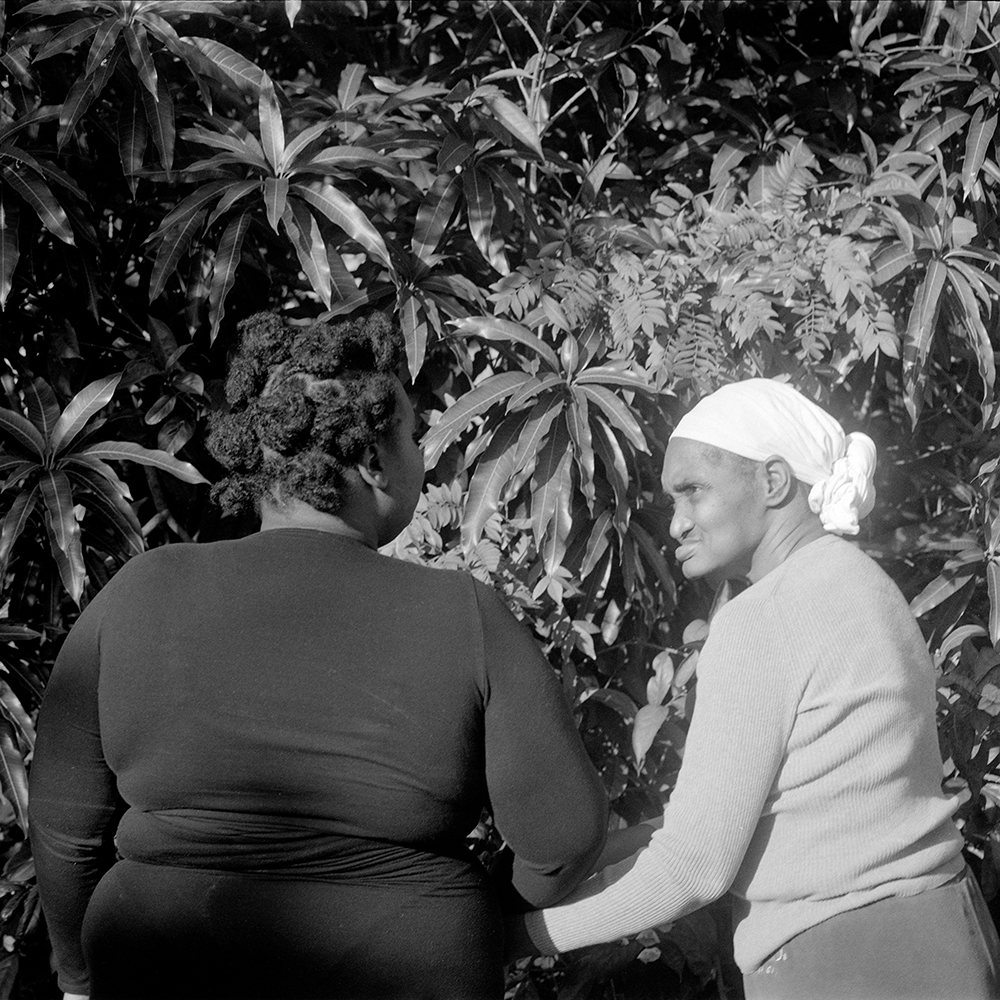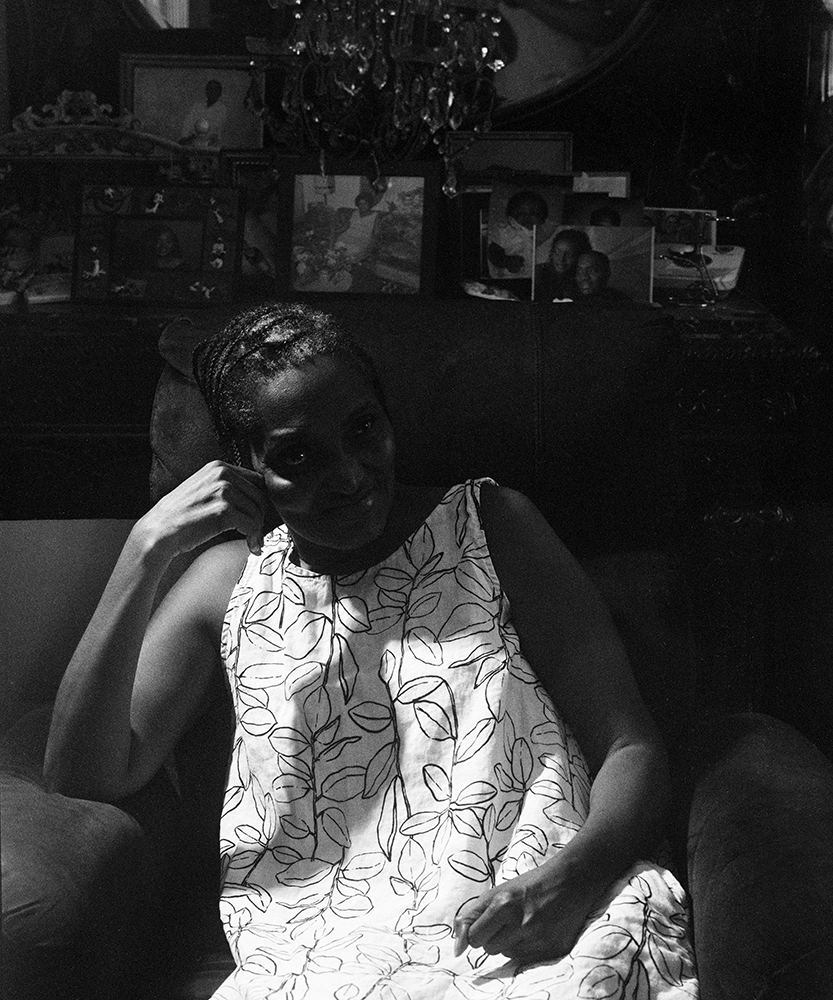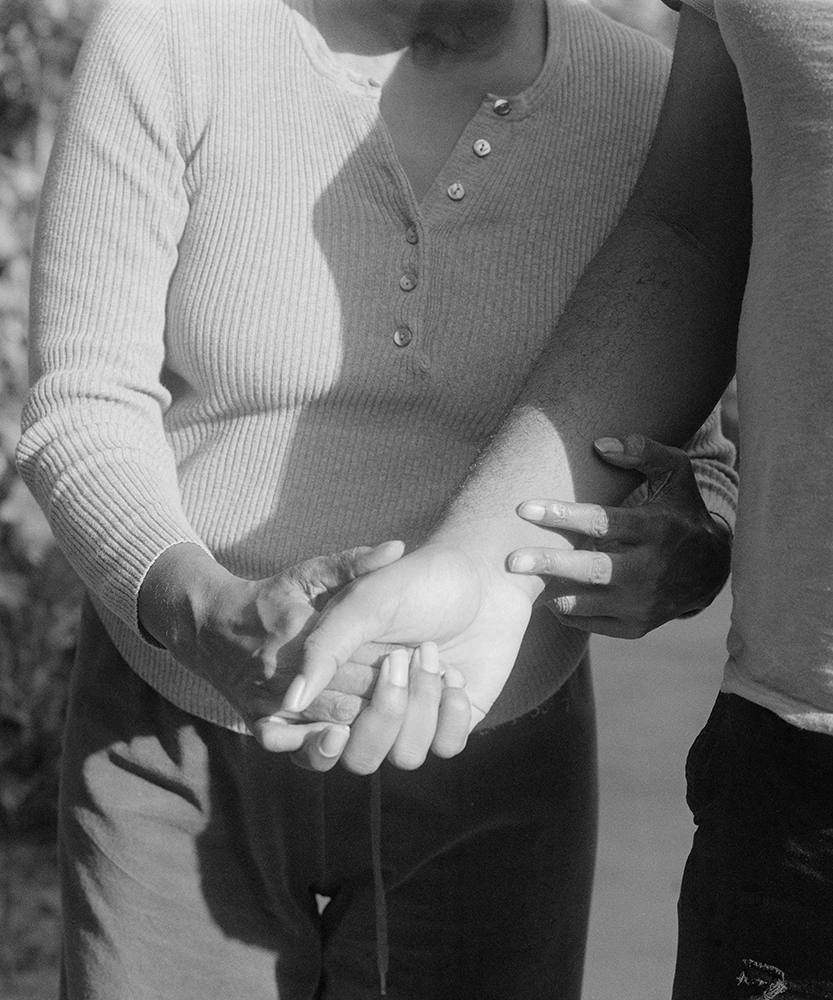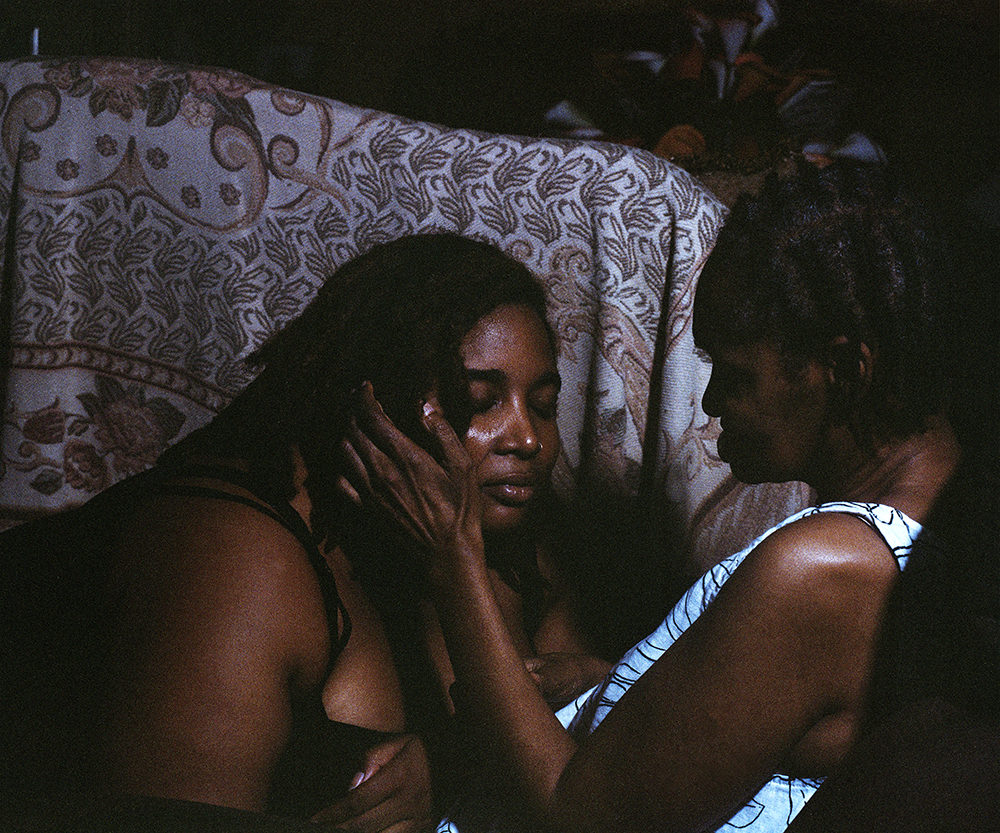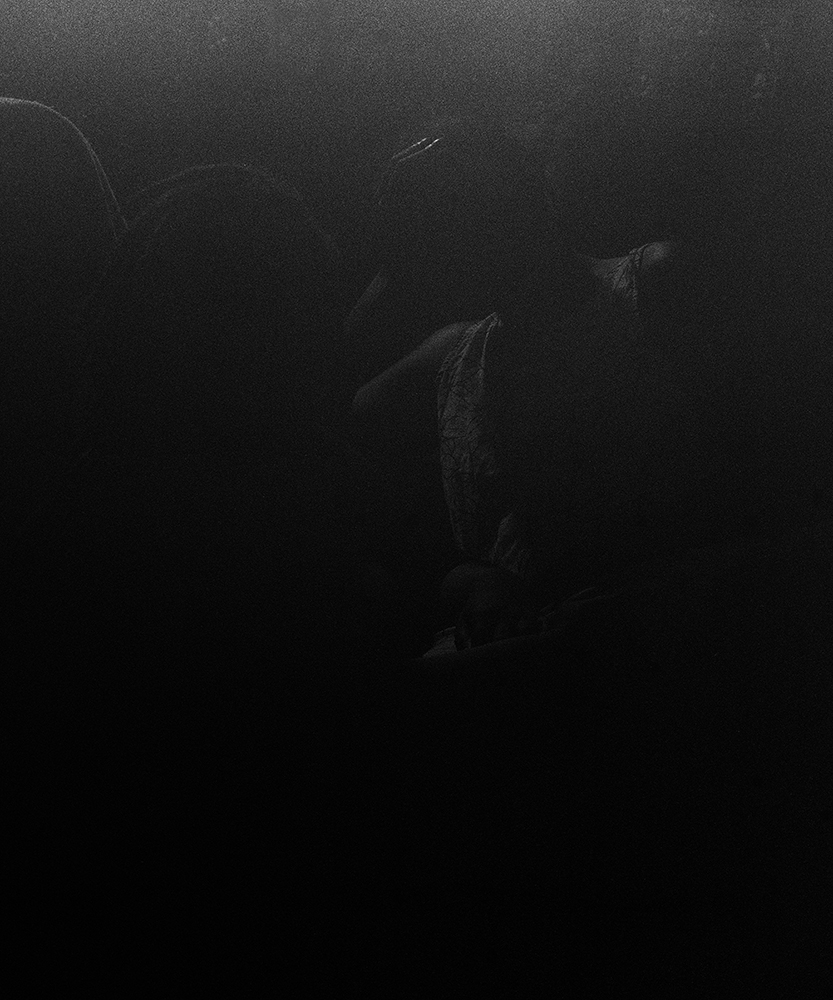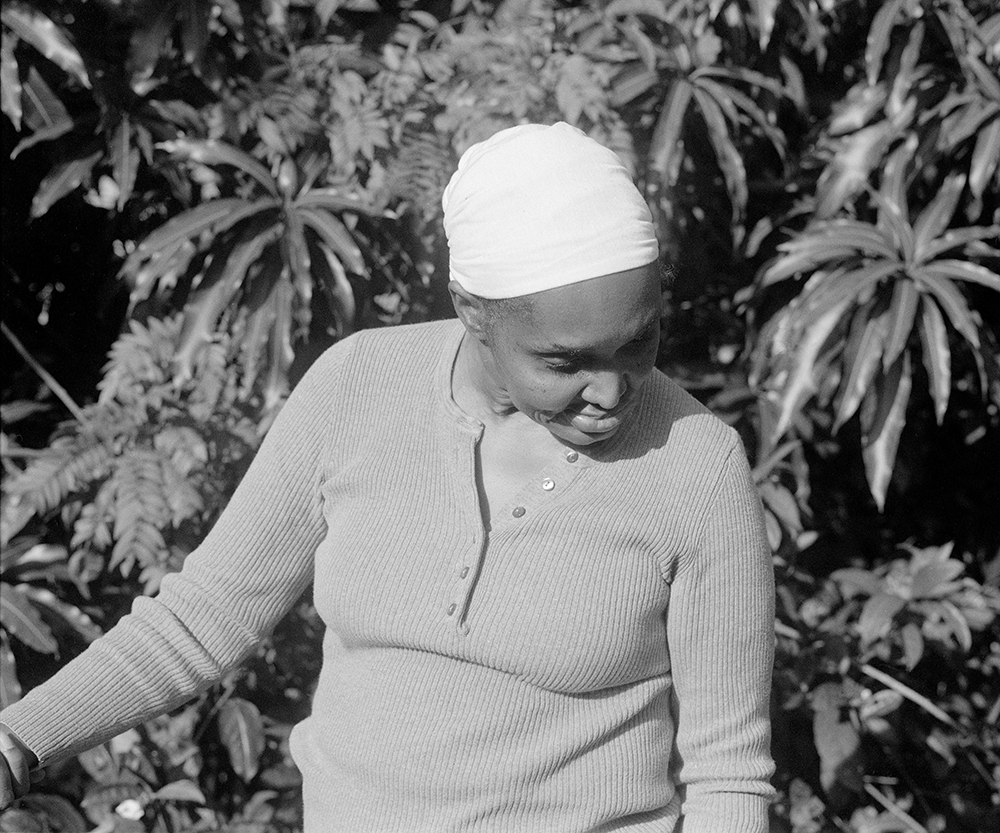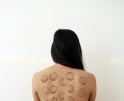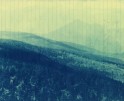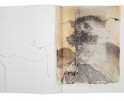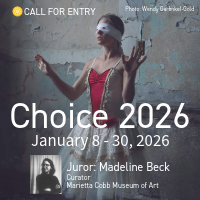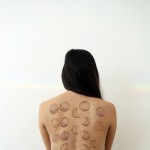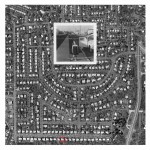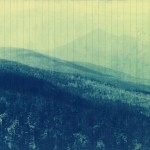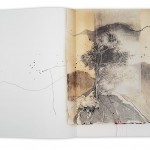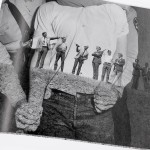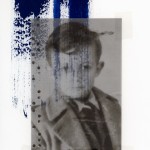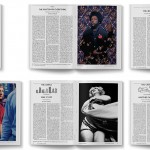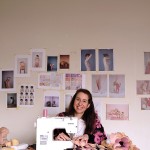This is My Mom. Her Name is Denise. | Alayna N. Pernell in Conversation with Jasmine Veronica
I attended the School of the Art Institute of Chicago (SAIC) from 2019 to 2021 where I pursued and received my MFA in Photography. During my time there, I overlapped in this pursuit with many phenomenal artists including one who I am in conversation with in today’s piece– Jasmine Veronica.
Jasmine Veronica is a Jamaican-American visual artist from West Palm Beach, FL, living in Syracuse, NY. Using photography, video, installation, and the archive, Veronica explores the complexities of care, memory, and familial relationships. She received her BFA in Studio Art from the School of the Art Institute of Chicago in 2021 and will be graduating with her MFA in Art Photography from Syracuse University in May of 2024.
She received the Aperture and Google Creator Labs Photo Fund in 2021. She has also participated in exhibitions at LightWork (Syracuse, NY), Common Space (Syracuse, NY), and SAIC Galleries (Chicago, IL). Veronica has been featured in online publications on Aperture, BLKHAPPY, Vmagazine, and Vogue Italia.
During my first year of graduate school, I came to know Jasmine through her previous body of work Guide to a Healthy Body, a series that calls to question and examines the irony of diet culture in today’s media. Her work shifted to a more personal, autobiographical archival investigation about her mother which has grown richly beyond our time at SAIC and is still evolving for Jasmine as an upcoming graduate in Syracuse University’s Art Photography MFA program.
I interviewed Jasmine to learn more about her work, her process, and more which can be read below.
Follow on Instagram: @jas_veronica
How do you attempt to discover someone who can’t recall their memories? My mother suffered an aneurysm rupture when I was sixteen. Afterward, I realized that I didn’t know who she was outside of being Mommy, so I began to explore her archive (photography and material) in hopes of discovering who my mother was outside of motherhood. While looking through her photo albums, I became fascinated with not only how she looked at the world but also our relationship through her photographic lens. I then realized that my memory of my childhood wasn’t fully connected. My memories before her aneurysm are slowly becoming repressed. Only returning as sporadic, cut scenes triggered by the images I discovered. This begs the question of how one returns to and restores what has been forgotten? Our memories fade and return as small random cut scenes. – Jasmine Veronica
Mommy’s Blanket by Jasmine Veronica
ANP: With the work that you are creating right now about your mother, what was the catalyst for you creating this work or deciding that this was what you wanted to make?
JV: Well, I feel like she’s always been within my work in some type of way. As you know, as my BFA show back in 2021, I was doing it about her because I always was curious– who is my mom? Even before she had her brain aneurysm rupture she was very private. She doesn’t like sharing details about herself, and I don’t know if that’s more of like a cultural thing because we’re Jamaican, or if it’s just her where she doesn’t want to share too much about herself. A lot of what I do know about her is also lost within my own memory of my childhood because I witnessed her aneurysm. So, the trauma of witnessing that, I don’t remember a lot of things prior to 16. I barely remember two months ago. My connection isn’t fully there. So when I did the BFA show, I had a very minimal amount of things and at first I didn’t want to do something about her because it was hard for me to relive all of that. After some like encouraging and pushing a little bit and kind of getting over that, I did the work about her.
Two summers ago, my grandfather made the decision that we’re going to stop paying for her storage and take everything out. For years, even when I was doing the 2021 rendition of this, I was like, “I know there’s stuff in that storage”, but it was such a chaotic mess that I didn’t have the energy to go through all that, but I knew that there was at least my photo album in there. I didn’t know what other stuff was in there, so when we went to the stores 2 summers ago and we were digging through stuff, I found a lot. I found photo albums that she had from her childhood and from her early 20s (before me); and then I also found some videotapes. I found a lot of original negatives. It was everywhere. At one point my grandfather accidentally dropped something that he was attending to throw in the garbage and out came all these images and negatives that was part of it. So I had all this stuff. I’m like, “There’s so much to do with this”, and even before that too, I was like, “Okay, I’m not very content in the work that I was making anymore with the body images and stuff and like that. I’m not in that phase.” Then I just got the aperture award so I felt like I had to keep doing it because that’s what I just got the award for.
After my first year at Syracuse, I said who cares. Then we went to the storage and got all this stuff. So this is the perfect opportunity for me to revisit that work because I didn’t have what I have now back in 2021. There was a bunch of material as well in terms of like clothing and bedding that I had remembered because I could see it. So my mom, actually that blanket right there [referencing blanket in the background of our video recording]– she has that blanket where she always wrapped herself in it. So when I found it and I smelled it, it smelled like her. That triggered memories of me seeing her with that blanket wrapped around her. Looking through the photo albums, I’ve discovered so much about her that I didn’t know about. Looking at mine too, I discovered things as well. So with this work, it’s about her, but it’s also about me in terms of rediscovering who I am and rediscovering our relationship looking at the archive; and also, what does our relationship look like now as me being one of her primary caregivers? Whenever I’m home, I take care of her. So I’ve been taking new photographs as well trying to figure out, okay what does this dynamic look like? I’ve been doing video stuff using the videotapes that I found and also new videos that I’ve been taking as well.
This is My Mom. Her Name is Denise
ANP: I get what you’re saying, and even going from having to feel that push and tug of– Am I going to share it or am I not going to share? This can be hard when it is work that’s personal to you. You talked about it a little bit, but just to circle back and dive deeper into it, you started this work when you were still an undergrad student at the School of the Art Institute of Chicago (SAIC). Now being at Syracuse University in your last year, have you noticed any other changes in your process going from working on this project as a student in undergrad to now being a grad student preparing for your thesis show?
JV: I would say the main difference is that I’m including myself more now than I did back then. Back then I was still detaching myself from it. I didn’t want to be involved in showing myself. I didn’t want to deal with the impact and the weight that that has on me. So when I was working on it for the past year (it feels like so much longer)or so, it was very hard in terms of trying to find myself within the work. I remember crying so many times because I really don’t remember a lot of things. So trying to relive that and rediscover that was really hard and that’s what I was trying to not deal with back in 2021. I didn’t want to deal with that, the reliving and the trauma of everything. So I had to do that in order to really come to where the work is now and it was very needed for the work to evolve. That was the main difference between then and now is really including myself within it. I’ve grown visually as an artist too, and I’m stepping out of the realm of just photography. A lot of the work is involved in video which is different for me.
I started working on the videos in 2019 here and there. So I was focusing more on photography because I’m a photographer and that’s something else too that I had to come to realize. You don’t have to put yourself in that box of being just a photographer. Even being in this program, which is an art photography program, I was like “I have to do photo” and my faculty members are like “No, you don’t.” So, a lot of the work right now is video. I’m going back into the photography realm for this last iteration of the work.
I wasn’t making a lot in terms of new stuff. I was making new stuff with the videos, but with the photos, I was just focused really heavily on the archive and trying to figure out, “Okay, what do I use from this and what is significant within this story?” Photography is not a back burner, but it’s one note in terms of video, installation, and photography. Installation is very important now because I’ve been using materials from the archive in terms of displaying the work. I don’t want it to just be an image on the wall. I want it to be a whole experience, so I’ve been using my mommy’s blanket in the video, and I also have used this toy chest my mom saved. I project “I am your daughter” into that toy chest. Then I also have a shower curtain (it doesn’t look like a shower curtain) with flowers on it and I project “This is my mom. Her name is Denise” onto that one. I also have a collage of the archival photos, and now I have to install the new photographs I’ve been taking within all of that. So there’s a lot going on.
I Am Your Daughter from Jasmine Veronica
ANP: I’m very excited for you that the Aperture + Google Creator Labs Photo Fund provided you with the funding to keep creating and going into this deeper. It’s been a learned lesson overtime that even with studying archives funding is still a necessary factor to do that work freely.
I also enjoy seeing you post little snippets on Instagram of what your evolving setup is looking like. Seeing artists go beyond the realm of just having a photograph on the wall in a frame and goes against the typical viewing experience excites me these days. It doesn’t mean you can’t experience a photo by viewing it in the standard way, but it’s a different approach I’m personally drawn to at the moment. It’s more of an appreciation over anything else.
With all of the things that you’re mentioning, it makes me excited to see what the final result will look like. I wouldn’t say that you’re coming to the end of the work (unless that’s something that you’re deciding to carry on with after grad school), but at this point in time, what are some things that you found surprising throughout your process of working with an archive for the last 3 plus years?
JV: The most surprising, I would say, is definitely how much I did not know or remember, and what I do recall based on seeing it. Before, I couldn’t recall certain things, and then when I look at the images it’s like “Oh wow, I remember that”. That’s the major thing is being able to recall certain things just because of looking at the archive. Plus how labor-intensive this shit is. She had so much loose stuff I was scanning. I’ve scanned so many things, especially negatives, and I was surprised at how much I knew my mom was a hoarder, but she really kept a lot of things.
So, trying to date things and put things in order so that I can figure out timelines has been surprising and hard because I don’t have her to tell me “Okay, this is the year this occurred. I was this old with this photograph. I met your dad around this time”, so I’ve been having to use my dad as a source for things.
I’ve been really having to piece things together myself which I know I was going to have to do, but it’s also like, damn, there’s so much to do. I remember spending so many hours at work scanning a bunch of things (especially negatives), and I personally scanned at 3F, even if it’s as little as 35 millimeters. I want some nice quality, so I’d be there for so long scanning things, but it was definitely rewarding in the end.
ANP: Have you found that going through a ton of work and revisiting the past has influenced your relationship with your mom and your family in any way since you’ve been working so closely in this work?
JV: I would say it has brought me closer to everyone because I was more reserved and secluded within myself because I wasn’t trying to relive the trauma. So I was in my own little dark bubble and confronting that with the work and working through that with the material, rediscovering a lot of things that she had kept. Connecting by asking my Dad questions or my grandmother, or even my mom, I’ll point to some random dude in a photo album and I’ll be like, “Is that your ex-boyfriend or was that guy your boyfriend?” And she’ll be like, yeah and I was like “She could have done better.”
So you know, it’s definitely brought me closer with my family in a way that I don’t think I was expecting to either because of the fact that I wasn’t trying to deal with it. I think that since the work has forced me to deal with it and be content in the circumstances that I’m in right now, I think that’s what I needed the work to do for me.
ANP: In making work that is so physically, emotionally, and mentally intense, what do you do to take care of yourself and get through it?
JV: You know, when I first came to Syracuse it was very hard to establish community here, specifically black community, because it’s so white and is way more gray than Chicago. So it was hard at the beginning the first year establishing community. I’ve met people along the way the past year or two, where I’m like, “Okay, I have community here.” I spend time with them, but I would say the main way is that I find time for myself. I like to take myself out on dates. I go out by myself a lot because I need to get out of my apartment. So, that’s the main way is getting out and finding space to just be and to take breaks from the work.
After fall of last year, I needed a break. This is very emotionally taxing and when I go home I spend at least a month when I go back home and then the summer is almost over. So when I go back home I have it in my head [that] I need to be doing work because I have this thesis. It’s coming up very fast. This summer I did take a good break. I took some photographs, but doing that was the last thing on my mind. I just needed a break from work, so I take breaks, and focus on me and what I need.
ANP: This is good and also important. I’m always telling people to not feel guilty about taking breaks. I’m also glad to hear when artists are taking care of themselves, especially in this hustle and bustle (which is sometimes unnecessarily competitive). It’s okay to calm down because things are going to work out.
JV: Yeah, I was telling Doug [Dubois] I see why colleges are hesitant of accepting people who come straight out of undergrad because I felt like I hit a wall. I know I need to be doing stuff, but I can’t find myself to get that camera out and be making work. Right now I have the images in my head, but I just need a break. I need a break. I thought about it, and I’m 24 going to be 25 in February. I’ve been in school for 20 years nonstop. No breaks, no mental peace, just academia, academia, academia. I’m at a place right now where I don’t want to be in school anymore. I’m ready for me to just be done.
But it’s also like you said– the art world is so competitive sometimes that I’m like damn, I should be making work. I see other people hustling. I’m not hustling as hard as they do. I see other people applying for things I don’t know, and I’m like well maybe I should be applying for stuff to at least get my name out there. Though, I make work for me even though my work can be applicable or connected to other people because I’m not the only caregiver of a parent. I might be one of the younger generations to do it, but I’m not the only person doing this.
With my body work too, I understand that it’s not just me, but it is about me with my work. There are other people who also go through this stuff, so maybe they can connect to it in that way, even if they’re not going through it. I’ve heard people say, “I can relate with your work. It makes me want to call my mom and check on her. It makes me want to appreciate my parents more.”
ANP: I feel that.
You talked a little bit about your graduating soon, which is exciting! It’s the best thing ever to be done with school. What are you excited about postgrad? Do you have things in mind that you want to do?
JV: I know my plan is to move back home to Florida. I’m trying to not move back home home, so I’ve been applying to things hoping I can get a job from now so I can start thinking about that.
My grandmother’s getting older. She’s going to be 80 next year. So, when it comes to my mom and my grandparents, they are older so they can’t keep doing it for as much as they are. I’m not fully taking over right now, but kind of just easing into what it looks like when I’m more full-time taking care of my mom and how that’s going to be.
When I graduate, I don’t want to do anything. I know I have to work and stuff, but I’m like damn, I have to work. I have to be an adult. I’m in college now and I was talking to someone and I was telling them college has really spoiled us when it comes to not having to be in a nine to five or 8 to 4 or whatever. Thinking about being in a nine-to-five makes me want to pass out. I don’t want to do that. It sounds boring, so I want to do something more remote or something where I don’t feel like I’m in some work setting that I just want to leave at the end of the day. I’ve always said that whatever I want to do, I want to be able to enjoy what I do and that’s what I’m trying to find is something that I know that I’ll enjoy doing and not want to go home as soon as I clock in kind of thing. So I’m actually very excited. I know it sounds like I’m not, but I’m excited to be more in the real world.
Right now, I feel kind of behind when it comes to my peers because people graduate and then they go out into the work force. I’ve been in school for so long that I don’t know how this is going to be, so I’m excited to see how that looks as well.
ANP: It’s an adjustment for sure, but it also gets to a point where it’s freeing. I’m rooting for you that you get a job that comes with a structure you enjoy so that you can enjoy this new chapter in your life with ease.
Alayna N. Pernell (b. 1996) is a visual artist, writer, and educator from Heflin, Alabama. Her practice considers the gravity of the mental well-being of Black people in relation to the spaces they inhabit, whether physically or metaphorically. Throughout her research and making, using a compilation of photography, text, and found materials, she unearths and examines the harsh realities and complexities of being a Black American woman.
In May 2019, she graduated from The University of Alabama where she received her Bachelor of Arts in Studio Art with a concentration in Photography and a minor in African American Studies. She received her MFA in Photography from the School of the Art Institute of Chicago in May 2021. Her work has been exhibited in various cities across the United States, including FLXST Contemporary (Chicago, IL), Refraction Gallery (Milwaukee, WI), JKC Gallery (Trenton, NJ), RUSCHWOMAN Gallery (Chicago, IL), Colorado Photographic Arts Center (Denver, CO), Griffin Museum of Photography (Winchester, MA) and more. Pernell was named a 2023 Mary L. Nohl Fellow; in 2020-2021 she was the recipient of the James Weinstein Memorial Award by the School of the Art Institute of Chicago Department of Photography and the 2021 Snider Prize award recipient by the Museum of Contemporary Photography. She was also recognized on the Silver Eye Center of Photography 2022 Silver List, Photolucida’s 2021 Critical Mass Top 50, 2021 Lenscratch Student Prize Honorable Mention, and more.
She is currently the Associate Lecture of Photography and Imaging at the University of Wisconsin-Milwaukee.
Posts on Lenscratch may not be reproduced without the permission of the Lenscratch staff and the photographer.
Recommended
-
Ricardo Miguel Hernández: When the memory turns to dust and Beyond PainNovember 28th, 2025
-
Pamela Landau Connolly: Columbus DriveNovember 26th, 2025
-
KELIY ANDERSON-STALEY: Wilderness No longer at the Edge of ThingsNovember 19th, 2025
-
Jackie Mulder: Thought TrailsNovember 18th, 2025

